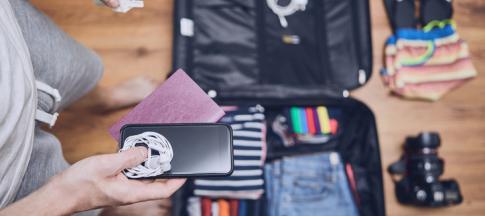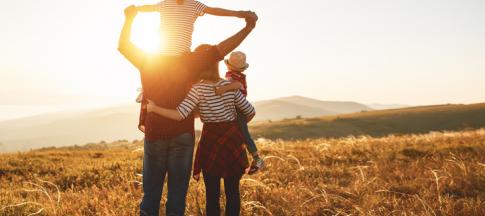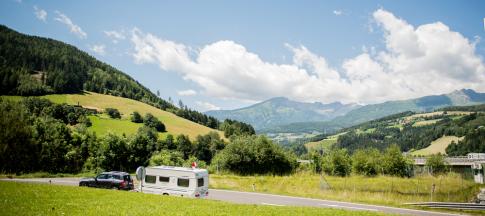
Here’s everything you need to organise for your next skiing trip, including what kind of insurance you’ll need.
When’s the ski season?
Most European ski resorts open at the end of November and close mid to late April. A few of the highest, like Tignes in France, are open until mid-May.
December and February are high season, meaning high prices and busy slopes.
February is a popular time for families due to the half-term week – avoid it if you don’t have children, as it’s usually the most expensive time of the year.
January and March are low season: fresh snow, quieter slopes, and better-value flights and accommodation.
In any season, piste closure can happen for a few reasons, including a lack of snow, the risk of avalanches and high winds. Skiing insurance will help cover the costs you lose if this happens.
Choosing a ski resort
Prices can vary hugely depending on the resort and country, so do your research.
Look for places with:
- accommodation near the ski lifts
- good après ski
- a resort crèche if you have young children
- facilities for when you’re not on the slopes, like a pool
If you’re a beginner, start by finding a resort that offers English-speaking tuition and lots of green and blue runs.
Booking accommodation
When booking accommodation for your ski holiday, there are a few options depending on your budget:
- catered ski chalets (private) – these can range in size and price but tend to be the most expensive option as they are fully catered and can be luxurious
- catered ski chalets (shared) – these are less expensive than private chalets, but you’ll have to share the space with other skiers
- hotels – this could be anything from a bed and breakfast to a luxury hotel, but tend to be less expensive than ski chalets
- hostels – this is generally the most popular option amongst students and solo travellers, as it’s cheap and sociable
Make sure you use a reputable website and check reviews before booking accommodation.
If you use a site like AirBnB to compare options, be wary if you’re redirected to a third-party site when booking.
What type of skiing travel insurance do I need?
You need travel insurance for any holiday, but you’ll need specialist insurance for a skiing holiday.
If you don’t add winter sports cover to your travel insurance policy, you won’t be covered at all – even if the incident you need to claim for didn’t happen while you were doing a winter sports activity.
This could include things like trip cancellation or delays.
Our winter sports insurance covers:
- piste closure – if all pistes are closed for more than 24 hours
- lost, stolen or damaged ski equipment
- replacement equipment hire
- costs for hired equipment, ski lessons, or lift passes you’re too ill or injured to use
Ski safety
To stay safe on the slopes, you should:
- follow the on-piste rules – this includes not stopping in the middle of the slope, and only overtaking others if you have a wide berth
- always wear a helmet – you should always wear a helmet, but this is especially important on black ski runs or other higher-level slopes
- be aware of your surroundings – if there’s a collision ahead, you need to be ready to get safely out of the way as soon as possible
- check your equipment – make sure your skis or snowboard are fitted correctly and double check them after every run
What do I need to pack for my skiing holiday?
You should remember to pack:
- a ski jacket
- salopettes
- gloves or mittens
- ski socks
- a balaclava or face mask
- long-sleeved layers
- sunglasses or goggles
Typically, you should wear sunglasses if it’s sunny and goggles if it’s cloudy.
High altitudes also mean stronger UV, so use suncream for your lips and face.
At the ski resort, you can hire:
- boots
- helmets
- skis
- poles
Some experienced skiers may choose to bring their equipment with them; in that case, remember to check your airline’s policies and make sure you’ve bought enough luggage allowance.
Read our guide on what to do if your luggage is lost or delayed.
Extra costs for your skiing holiday
It isn’t just accommodation and flights you need to think about when booking a ski holiday. We’ve broken down all the extra costs you need to budget for.
Ski equipment hire
You can hire equipment at the ski resort, including skis, snowboards, boots, and helmets.
Prices can vary depending on which equipment you want to hire and how long for, although pre-booking will generally get you better deals.
You can hire equipment for a half day, a full day or a whole week.
The overall cost should include damage insurance.
Lift passes
You need a pass to go up even the most basic lifts, which you can buy in advance or at the resort. You’ll generally save money if you book in advance.
If you're travelling as a family, you can buy a family pass, which is cheaper than buying individual passes.
Ski lessons
You’ll need lessons as a beginner. Private lessons can be expensive, but you’ll progress more quickly. Group lessons, available as half or full-day sessions, are cheaper.
Check with the ski school before buying lift passes and hire kits, as they usually offer packages with these included.


